This low sodium mayonnaise recipe is an easy way to shave some points off your sodium budget. This recipe makes a healthier mayonnaise without sacrificing taste. In fact, this turned out so well with the ease to make and great taste. I wouldn’t go back to any brand that can be found in a store, even if I wanted. This really great tasting low sodium plain or chipotle mayonnaise is a great way to do it.
You can put it on almost anything – tuna fish sandwich, my roast beef deli-meat, coleslaw, over veggies …its uses are truly many. It takes less than one minute extra to make this Homemade Spicy Chipotle Mayo. It literally takes longer to get the seven ingredients together than to whip it up. Your homemade mayo will taste fresher, have a more flavorful zing, and be better for you than anything out of a processed jar. It will also have much less sodium per serving. Alas, you can’t really use more because of the fat!
Sodium in Store Mayonnaise
| Typical sodium amount per serving | 75 mg |
| Sodium per serving for this recipe | 4mg |
| Calories per serving | 125 |
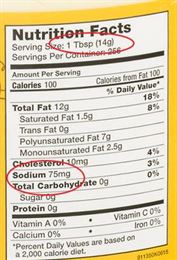
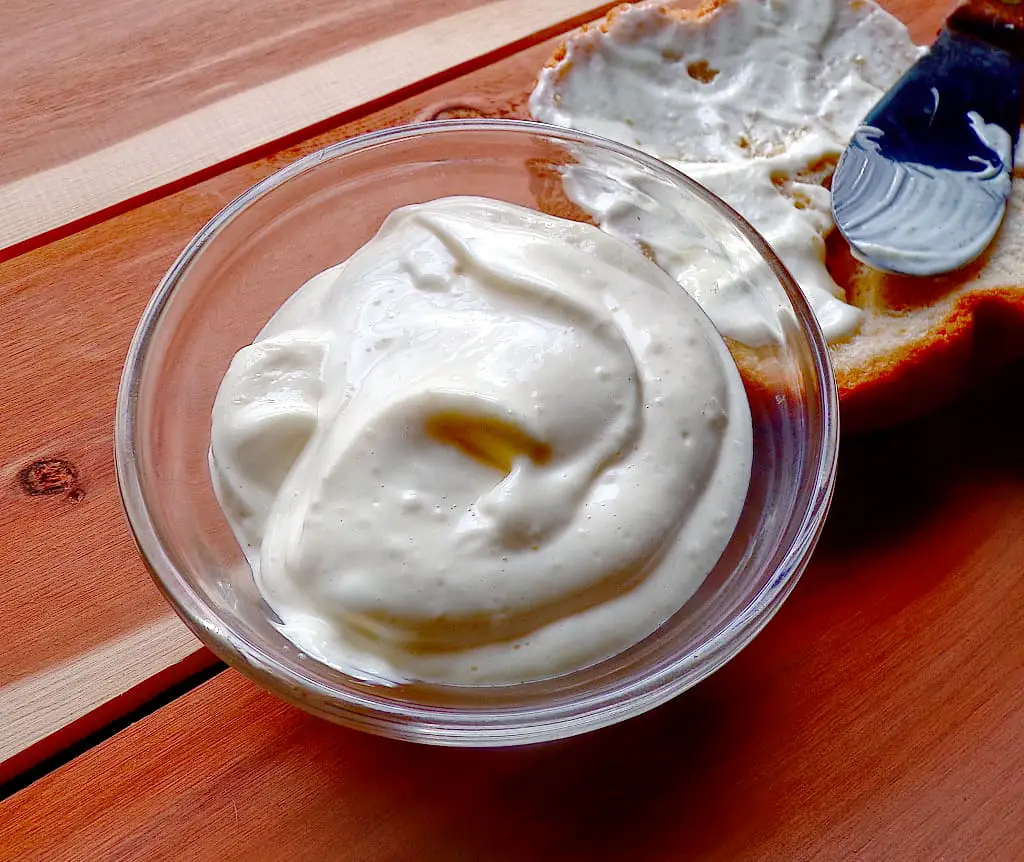
Equipment and ingredients needed
Ultimately what you need to do is get air into the mixture. You can do it with a hand whisk, but this is much too much work. Using a blender requires patience and more cleanup time. Patience by drizzling the oil in ever so slowly and then breaking it all down for cleanup. And once in a while, because of temperature, or you’ve added oil a little too fast, or just because the recipe separates and “breaks”.
The “secret” is to use a hand stick blender with a mixing container that allows the blender head to just fit inside creating a vortex. All the ingredients can be put in at once with no slow drizzling of oil or tired arms, you can blend up a batch in less than a minute.
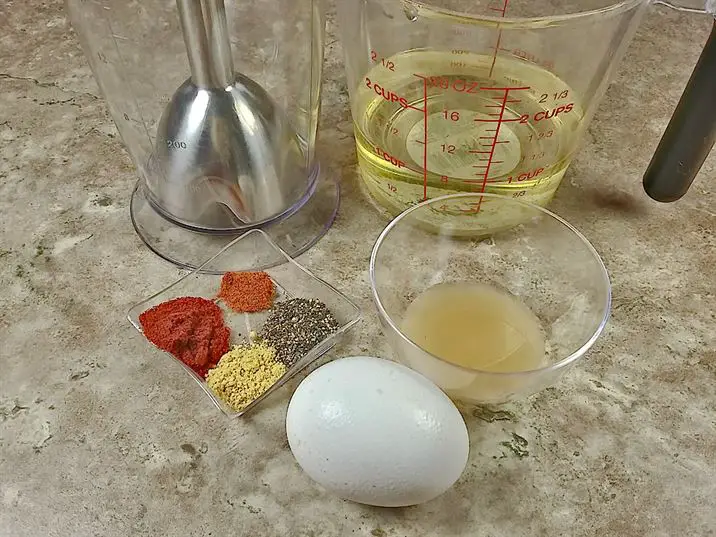
I am pretty late to the game with hand blenders. I wasn’t cooking much anymore and didn’t feel I needed one. But I am so happy now that I got this one. It is corded and has a powerful 12-speed motor so you don’t have to worry about it being charged up or running out of juice. It makes making mayonnaise a breeze and I’m using it more than I ever thought I would. You can check this hand blender out on Amazon here…
Having a jar with a mouth wide enough to fit the blender head into reduces clean up even more. As you can blend it right up in the storage jar and then store it in the fridge. One with a screw-top lid would be best.
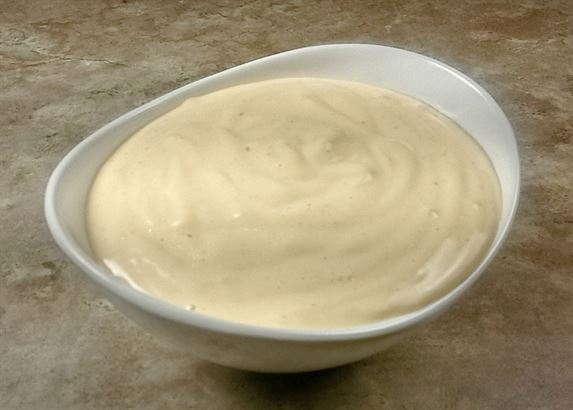
PICKING YOUR OIL
The choice of the best oils can make your head spin. Between the taste and unhealthy fats it can be confusing. I’ve tried to pick the best oil to cover both aspects but I also tend not to use a lot of mayonnaise overall. As such, I usually make it in small batches of ¾ to a cup,
I typically make my homemade mayonnaise from light olive oil. It is among the best oils to use along with highly-rated sunflower, grapeseed, avocado and macadamia nut oil. I’ve yet to use the last two but am interested in trying them soon. These oils typically have a neutral taste and are lower in polyunsaturated fats.
That being said corn, vegetable, canola and other refined vegetable oils should not be used in your mayonnaise. They are typically quite high in unhealthy polyunsaturated fats. Also, while regular olive oil is heart-healthy, mayonnaise made with regular olive oil has the problem of having a strong flavor. Its taste can be overbearing and it can become bitter from the blending process that releases bitter phenols.
Homemade low sodium mayonnaise may seem a little bland at first, probably because of so little salt. But by enhancing with the flavors just like in this recipe it won’t be noticed. You can also experiment with other flavors like garlic, different peppers and heavier tasting oils like EVOO, sesame oil, etc. At the end of the day, look for a light-colored tasting oil and preferably one low in polyunsaturated fat.
Which oils do you like to use?
Mayonnaise mixing process with immersion blender
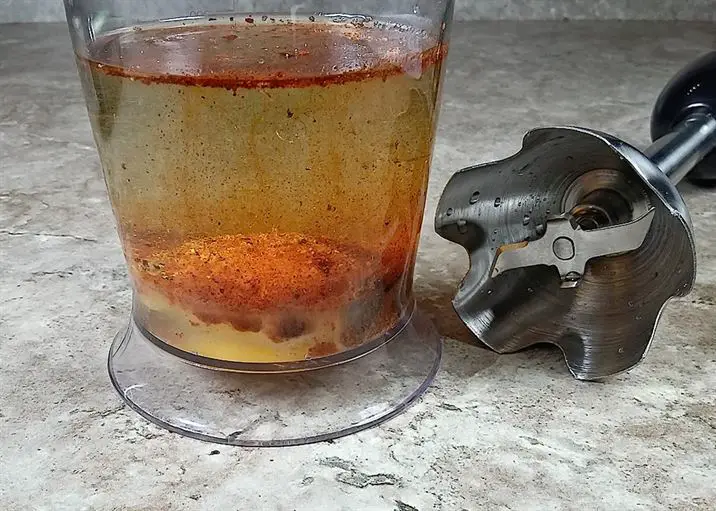
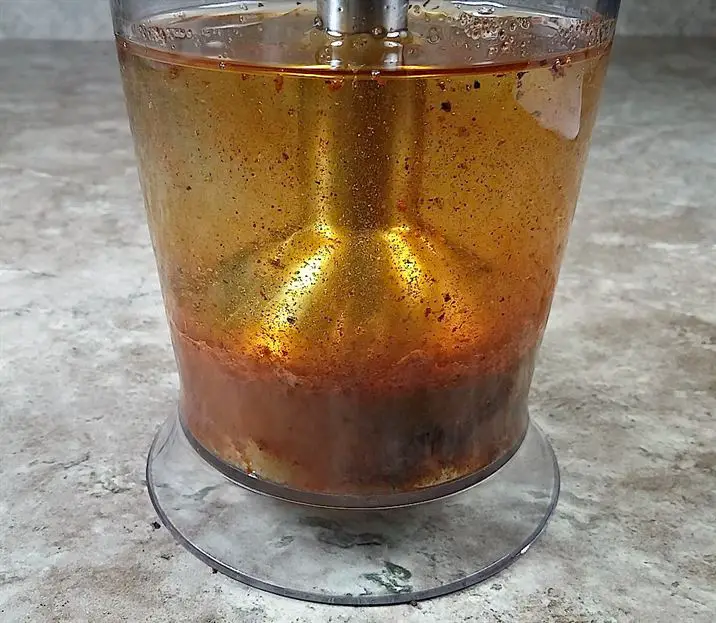
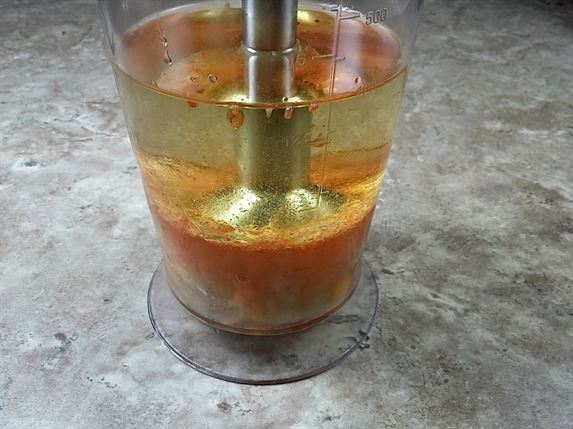
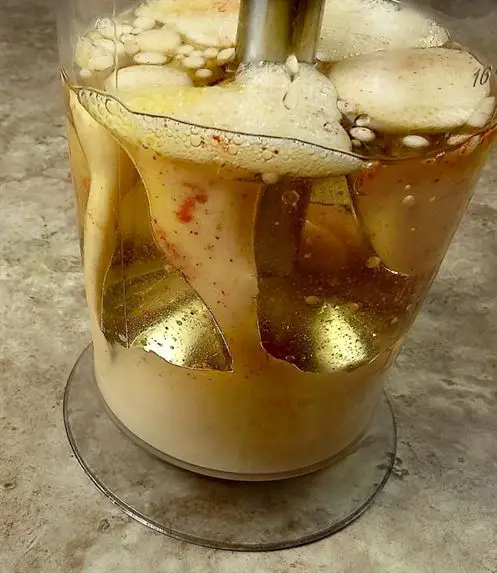
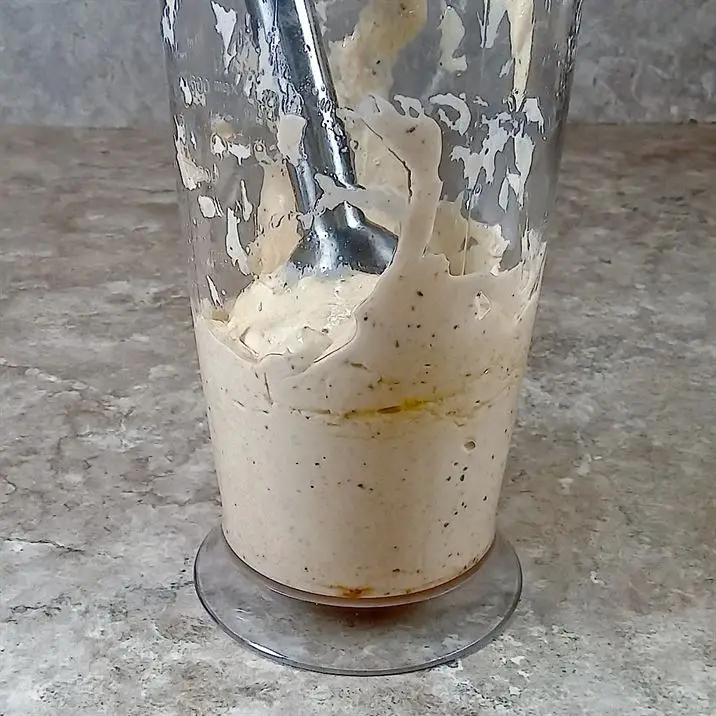
Storing your homemade mayonnaise
People tend to be wary about the mayo because of the raw egg. So long as you keep it refrigerated and out of the food safety danger zone, this should not be a concern. By using fresh eggs and thereby having the longest expiration date, it should be fine until after the expiration date of the egg.
The acidity of white and apple cider vinegar makes the environment too acidic for any bacteria to take hold and thrive during this time.
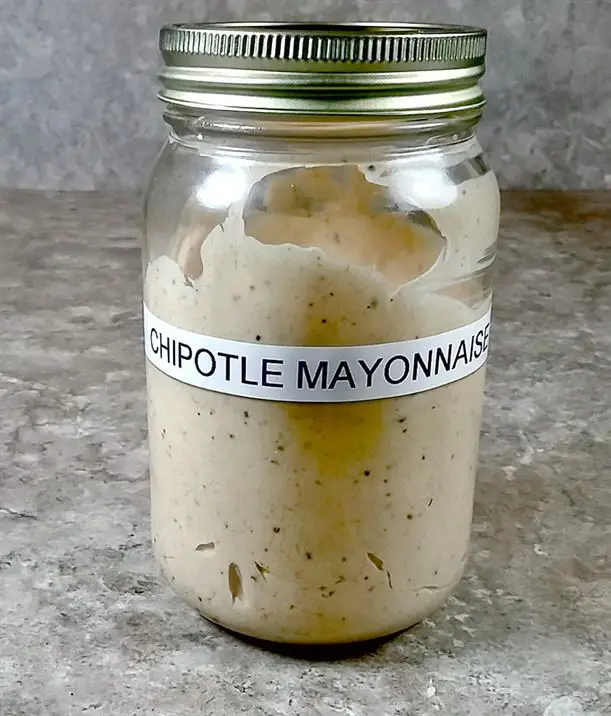
Store-bought mayo uses pasteurized eggs, which increases shelf life and also makes a thicker final mixture. If you’re worried about salmonella you can use store-bought pasteurized eggs or DIY pasteurize your eggs at home, though I can’t say I’ve ever bothered.
Also by making small batches of a cup as in this recipe it tends to be used up quickly staying well within the date. I also use a grease pencil on the jar to note the expiration date of the egg. Note the egg expiration date, not date you made!
Other recipes to use low sodium mayonnaise with
- Low sodium roast beef sandwiches
- Low Sodium Ranch Dressing
- Low sodium coleslaw
- A low sodium baked potato salad
Low Sodium Mayonnaise Plain or Chipotle
Ingredients
- 1 large egg ( room temperature)
- 1 cup extra light olive oil ( or canola oil (see nutrition label below))
- 1 tsp Mustard Seed yellow ground
- 1 tbsp distilled white vinegar
- 1 tbsp apple cider vinegar
- 1 tsp Ground Chipotle Chile Spice Islands ( Omit for plain mayonnaise)
- 1/4 tsp Pepper Red Or Cayenne ( Omit for plain mayonnaise)
Preparation
- Place all ingredients in order listed in a narrow jar or beaker just wide enough to fit your stick blender.
- Place stick blender in the bottom of the jar and turn on high. A vortex will form and pull the oil down and the oil will begin to thicken and turn to the typical off-white.
- Slowly move the blender head slowly up and down a little higher each time, until all the oil is incorporated and the mayo is thick and no drizzles of oil is visible. The whole blend should take no longer than 1 minute.
- Store in a sealed container in the refrigerator for up to two weeks or the expiration date on the eggs.
Notes ______________________________________________
Utensils & special ingredients used
I use, own and recommend these products and ingredients used in this recipe and I may earn commissions from qualifying purchases.
Nutrition
The information shown is an estimate provided by an online nutrition calculator. It should not be considered a substitute for a professional nutritionist’s advice. Please understand that not everyone’s sodium and dietary requirements are the same, therefore some recipes may be higher than you’re allowed.
https://tastyhealthyheartrecipes.com/a-la-cart/sauces-dips-spices/low-sodium-mayonnaise-chipotle/© 2025 Tasty Healthy Heart Recipes
As always, please let me know how you like this recipe in the comments! I get motivated when I hear from you and am interested in how you liked and served your low sodium mayonnaise chipotle or plain. And please share any tips you might have.
Nutrition Information – The information shown is provided by an online nutrition calculator. It should not be substituted for a doctor’s or nutritionist’s advice. Please understand that not everyone’s sodium requirements are the same, therefore some recipes may be higher than you’re allowed. Always consult with your doctor for your recommended daily sodium allowance.
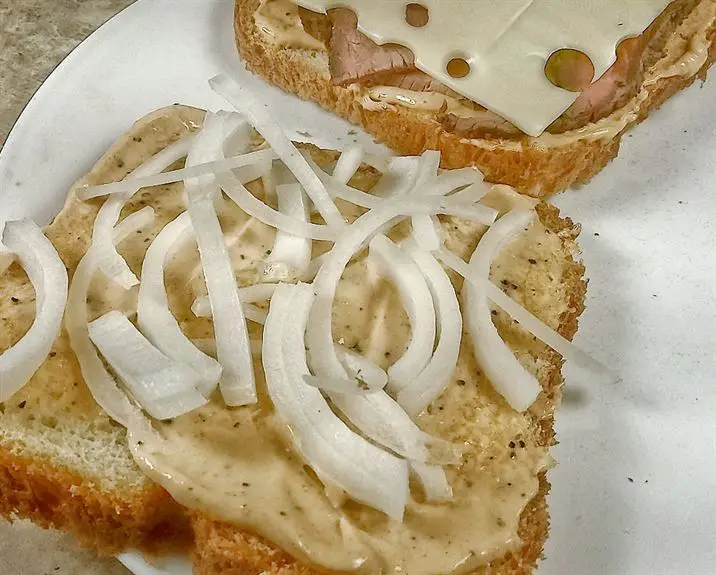
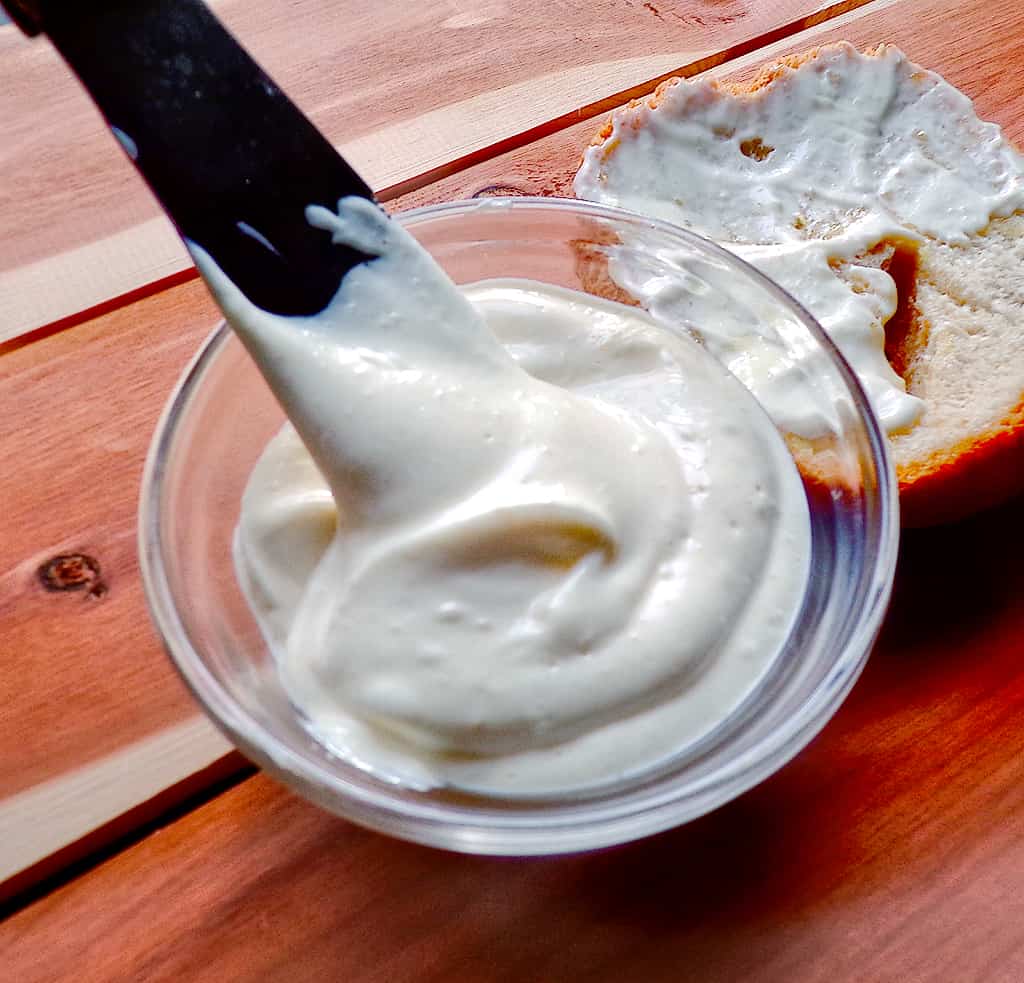
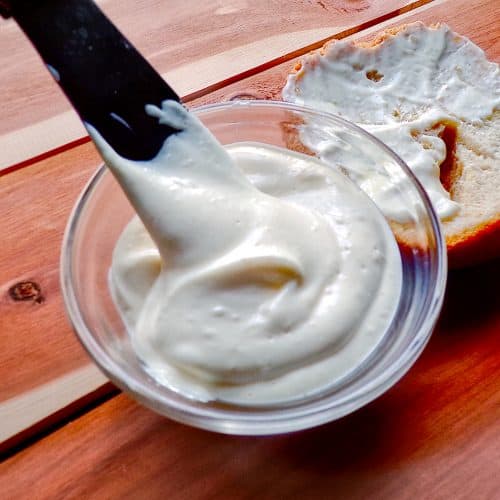
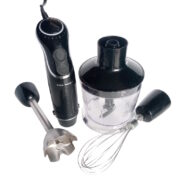



Hi, Bill! I’m grateful to you for sharing your recipes. I’m new to the low sodium World and all your recipes that I’ve made have been A hit with MY family.
In the “selecting the oil” section, canola oil isn’t recommended. THE recipe indicates canola oil can be used as an alternate. I’m not an experienced cook; what should i use? Thank you.
Hi Sarah, I use and like, either extra virgin olive oil or avocado oil as they are supposed to contain healthier fats. Oils like the canola contain polyunsaturated fats which are less healthy.
Bill
Thank you Bill.
Hi Bill! I’ve tried many of your recipes and all were great….I had put off making the LOSO Mayo since I didn’t have a emulsion blender….I bought one and it is a game changer! I made the mayo this morning, then realized my eggs were going to go out of date in two days, so I made the ranch dressing, potato salad and a tuna salad, all using the loso mayo…we will consume those salads in the next two days to be on the safe side since the eggs were not really fresh… The mayo is fantastic and I know it will make the other dishes great!…..mine turned out a little more yellow and I did add about a half of a pack of equal. The EVOO taste was a tad too strong, but the equal made it so much better. I will certainly make the mayo on a regular basis, but pay closer attention to the expiration date of the eggs. Thanks for all your recipes!
Thanks, Bill,
I’ve come across your site a few times now as I’ve needed to transition (too young!) to a sodium-free diet, which has helped me a lot healthwise on some very critical issues. I have to eat organic so there are some seasonings and tricks in your recipes I have to adapt and a few recipes I have to pass up, but I’ve gained so much here. Today, thanks for solving the problem of emulsifying without prepared mustard (also read “sodium festival” :)). Regarding the comment above about differing consistencies, I would add as a chef that this can definitely happen depending on which batch of or how old the eggs are that someone is using, as well as the quality of the mustard seed and the acids. The eggs will vary the most. Since all of us are using eggs from a different source, they will also be different weights and sizes (I know they are standardized but there are MANY other factors). Thanks for sharing here. I know how much effort it can be to do a site like this since I’ve done them before, and I appreciate your generosity in this era of it costing way too much to run a website. Blessings to you 🙂
Thank you for your comment Lindsay! It’s great hearing a little more background from a pro chef!
Yes, not every recipe will be for everybody. My primary goal is to make it as low sodium as possible. Which by itself may not fit every bodies needs.
And your right, sometimes the technical aspects of a website takes away from the initial inspiration. 🙁
Thanks again,
Bill
So happy to have found you.
My husband was put on dialysis in
June. We have followed all doctors instructions
And cut way back on sodium. He is now off of dialysis and doing great.
He loved the lie sodium ranch dressing. Will try the mayo later
Do you have a printed cook book?
Hi Sharon,
I do not have a cookbook at this time. Something I’ve thought about for the future though.
Hi Bill,
New to your sight and loved your french dressing and italian dressing. I made the mayo but it came out a little more loose than it should be. Any suggestions on what to cut back on to make it thicker? Oim excited to see what else is hidden in your website.
Blessings,
Dan
Hi Dan,
I would cut back on the oil 3-4 tablespoons. You can always add a bit more at a time to get the consistency you like.
Hope you enjoy more recipes.
Thanks for your comment.
Bill
I made this recipe and followed it exactly for plain mayo, but it seems to be not thickened enough. Did I do something wrong? The flavour is nice, my husband likes it and he is on a no salt-low salt diet. I would however adjust the spices according to our taste next time.
Hi Joan, I don’t think you did anything wrong. It might be just the size of the egg or how long you blend. Mine comes out slightly different each time too. If it persists try cutting back on the oil a bit and add more while blending, to get your desired thickness.
Yes, don’t be worried about throwing your own spices in. It is always fun to experiment!
Bill
I followed the direction exactly for plain mayo but all I can taste is the overpowering ground mustard powder. I will use this again, but will cut the mustard powder down to less than half a tsp. Otherwise it’s easy and good texture. Thanks for sharing it!